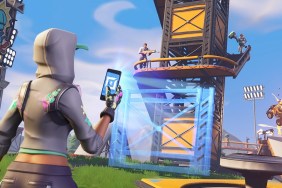Here's my prediction: Despite all its innovations and accolades, Little Big Planet will not have much of an impact on the gaming industry as a whole.
At first glance, this claim might seem mind boggling: How could LittleBigPlanet, Game Revolution’s 2009 Game of the Year and winner of 4 awards at the Games Developers Choice Awards (though it did not win for Game of the Year there), a title that has swept the gaming world with its playful appeal for imagination, not inspire a long host of developers to follow in the footsteps of their success? Wouldn't the laws of business guide them to where the new money, the new genre, is?
Grand Theft Auto III spawned so many third-person open-world extravaganzas that the word “open-world” has become practically obsolete. And it’s by no means the only title to be a commercial success in its genre. Other such watershed games are easy to identify: Super Mario Bros. (Platfomer), Final Fantasy VII (RPGs), Street Fighter II (Fighting), Pong and Pac-Man (Twitch), Tetris (Puzzle), Wolfenstein 3D and Doom (Shooter) – just to name a few. So why should LittleBigPlanet, an award-winning blockbuster for the new “game creation” genre, be exempt from this prestigious Gaming Cum Laude?
Taking nothing away from its originality, LittleBigPlanet may be too unique, too revolutionary for its own good. And when I say “for its own good”, I mean it. Having a distinct concept – turning what would have been a humdrum level editor into a saccharine sweet, Sackboy-whacking, family-friendly platform for a breeding ground of happy-go-lucky creativity – is essential for branding, and you can count on numerous expansions through downloadable content, if not full-on sequels for retail.
But its bright aesthetic is so entwined in its design that any title wanting to turn a professional level building application into a mainstream game by wrapping it in kindergarten stylings would be immediately labeled as a rip-off. The ship of innovation as a selling point has sailed, and marketing such a game would be as difficult as trying to pawn off an action puzzle title about rolling garbage into an ever-growing ball as something “new”.
It would seem, though, that none of this speculation matters when taking Microsoft’s upcoming build-your-own-platformer title into consideration. Even though LittleBigPlanet only sold about 700,000 2.12 million copies [Edit: Updated figures for April 2009. (Source: vgchartz.com.) However, even today's figure is only par for a "high-profile" title released 5 months ago. Resident Evil 5 for the PS3 already has 1.44 million units sold. ~Nick], Boku, a programming tool which some have already dubbed “The Xbox 360’s Little Big Planet”, essentially dresses up what is generally a cut and dry visual programming language with easy-to-use interfaces and Mac-worthy icons that are meant to draw a younger casual audience. Like its counterpart, players – or should we say, creators – do not need any knowledge of programming to begin crafting the title they’ve always wanted to play. And that includes all genres, not just 3D platformers to which LittleBigPlanet is restricted. So what then is all this fuss about a lack of impact?
 Counter-intuitively, Microsoft’s throwing down of the gauntlet clearly reveals LittleBigPlanet’s sphere of influence: first-party developers. If the game was not published by and not so precisely marketed by Sony, it would have been more probable that third-party developers would jump on the “ultimate user creation” bandwagon. This is even taking into account the risk of product recalls and having to deal with the beast of online user-generated content (can you say penis monsters?) and petrifyingly long development schedules (I dare not try to remember the first time I heard of LittleBigPlanet without a shot glass). With Sony receiving at least as much credit as Media Molecule for giving LittleBigPlanet a chance, it would seem impolite and dicey for a third party to come in with their ostensibly “better” version of a level-building editor.
Counter-intuitively, Microsoft’s throwing down of the gauntlet clearly reveals LittleBigPlanet’s sphere of influence: first-party developers. If the game was not published by and not so precisely marketed by Sony, it would have been more probable that third-party developers would jump on the “ultimate user creation” bandwagon. This is even taking into account the risk of product recalls and having to deal with the beast of online user-generated content (can you say penis monsters?) and petrifyingly long development schedules (I dare not try to remember the first time I heard of LittleBigPlanet without a shot glass). With Sony receiving at least as much credit as Media Molecule for giving LittleBigPlanet a chance, it would seem impolite and dicey for a third party to come in with their ostensibly “better” version of a level-building editor.
LittleBigPlanet is as much a “game” as it is an application, and to the eyes of third-party developers, it would also be an uphill battle competing against a piece of software that has as much monopolizing power as Adobe Photoshop. Now that the genre has been claimed by Sony and soon Microsoft (and perhaps even Nintendo which uses "casual" as a buzzword), there is little incentive to enter a battle that they don’t need to fight. With the marketplace and online communities so clearly demarcated between consoles, the firepower that these two giants can wield – with time, resources, and sheer command – would lead many developers to one conclusion: Just step aside and walk back slowly.
Although the future of the level building genre may be a lonely one, dominated by first-party developers (a LittleBigPlanet sequel is already in the works), LittleBigPlanet leaves its mark in other, more significant ways. It legitimizes the efforts of preexisting mod communities and players willing to spend hours creating detailed maps, characters, and music – and nearly completely validates earlier game creation titles like Agetec’s Fighter Maker and RPG Maker series.
In the footsteps of Mario Paint, it re-establishes creativity, unadorned and stripped to its core, as a reason – if not the only necessary reason – for playing a game. More than the genre, LittleBigPlanet revitalizes the idea of redesigning a development tool for the few into a quirky gadget for the many – turning a set of unwieldy bricks into clean and snappy Legos. However, like Legos, the original product is so dominant and so nearly-perfect and unassailable that third party developers face an expensive uphill battle if they want to compete. Of course, only time will tell.







